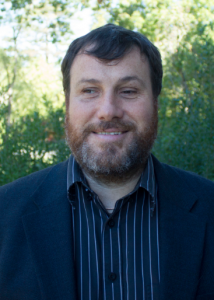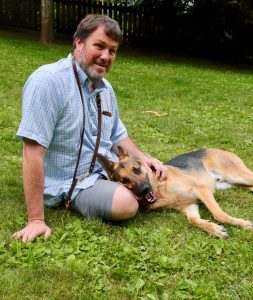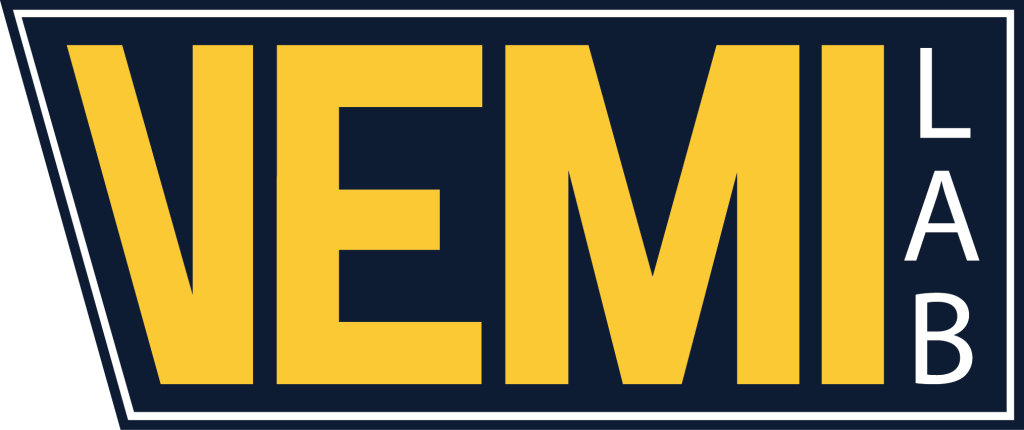Nicholas Giudice

Dr. Nicholas A. Giudice, III.
I am a Professor at the University of Maine, Chief Research Scientist at VEMI Lab, Chief Research Officer at UNAR Labs, & various other things depending on the day, my mood, & who you ask.
I did my undergraduate training in Psychology/Philosophy at Providence College, Rhode Island, received my Ph.D. in the Cognitive and Brain Sciences Psychology program from the University of Minnesota, and did my postdoc in the Department of Psychological and Brain Sciences at the University of California, Santa Barbara.
I started at the University of Maine in 2008 and am currently Professor of Spatial Computing in the School of Computing and Information Science. I was the founder (2009), Director (2009-2019), and am currently Chief Research Scientist (2020-Present) of the Virtual Environments and Multimodal Interaction (VEMI) Laboratory. VEMI is a student-focused, hands-on research, education, and training facility that was built, directed, and operated as a joint labor of love with my friend and colleague, Dr. Richard Corey (VEMI’s current Director). For more information about VEMI, our students, our projects, and affiliated collaborators, please explore VEMI’s general website.
While the current page (and its subpages) relates to my work at VEMI and include many substantive contributions of its members (current and past), as well as by other collaborators around the world, the focus here is specifically on my personal views on research, science, philosophy, and other topics. As such, this content and the opinions and positions advanced are not necessarily those of VEMI, my collaborators, UMaine, or anybody else other than myself.
Please check out the following links to learn more about me. If you have questions, comments, ideas, or issues of debate on anything on these pages, please drop me an email.
Research Statement and Contributions
My research philosophy is that good science should strive to be both theoretically motivated and functionally relevant. To this end, my research program provides a unique bridge between research on navigation and spatial cognition and inclusive interface design supporting multisensory information access. My work draws on multiple disciplinary domains in the study of how spatial information is learned, represented in memory, and acted upon using multiple inputs (audition, language, touch, and vision) by both blind and sighted people, as well as the design of multimodal information access and autonomous technologies to facilitate these endeavors. This page provides a brief overview of my research program and highlights a few areas where I believe my work has made the greatest scientific contribution and had the broadest impact.
The sum total of one’s professional life can (and should) be evaluated in multiple ways. There is a tendency to quantify ‘impact’ based on easily counted metrics (publications, grants, etc) and while this provides one method of tallying one’s productivity, it misses many other harder to measure factors, such as the students you have influenced through teaching and mentoring, how your ideas have impacted others thinking, and how your actions and leadership has shaped others to act and lead. I view these qualitative factors as being a big part of what makes for a ‘successful’ professor and mentor and they are ultimately what brings me more pride and satisfaction than the traditional ‘bean counting’ metrics of success. However, these alt metrics are difficult to enumerate and are rarely considered in academic CVs, which tend to focus on what is easily counted. Honestly, my CV is no different but…I have made a sincere attempt to highlight the student contributions and successes that have been part of my contributions and successes, as that is how it actually happened. I do not operate in a vacuum, what I have done is in no small part due to the significant role of the people I work with, from high school students to full professors, and all should be recognized in the telling of my academic journey. As such, this summary page provides a snapshot of my professional productivity, effort, and contributions as of July 2022 with the explicit caveat that none of it would have been possible without the assistance, contribution, and hard work of a ‘village’ of collaborators.
 I have worked with a guide dog since I was 19 years old. My dogs have gone many places with me, traveled to various countries, suffered patiently through innumerable classes, talks, meetings (and nights at the pub), and have been supportive of me at all stages of my work journey. My current guide dog, Norbert, is pictured here.
I have worked with a guide dog since I was 19 years old. My dogs have gone many places with me, traveled to various countries, suffered patiently through innumerable classes, talks, meetings (and nights at the pub), and have been supportive of me at all stages of my work journey. My current guide dog, Norbert, is pictured here.

